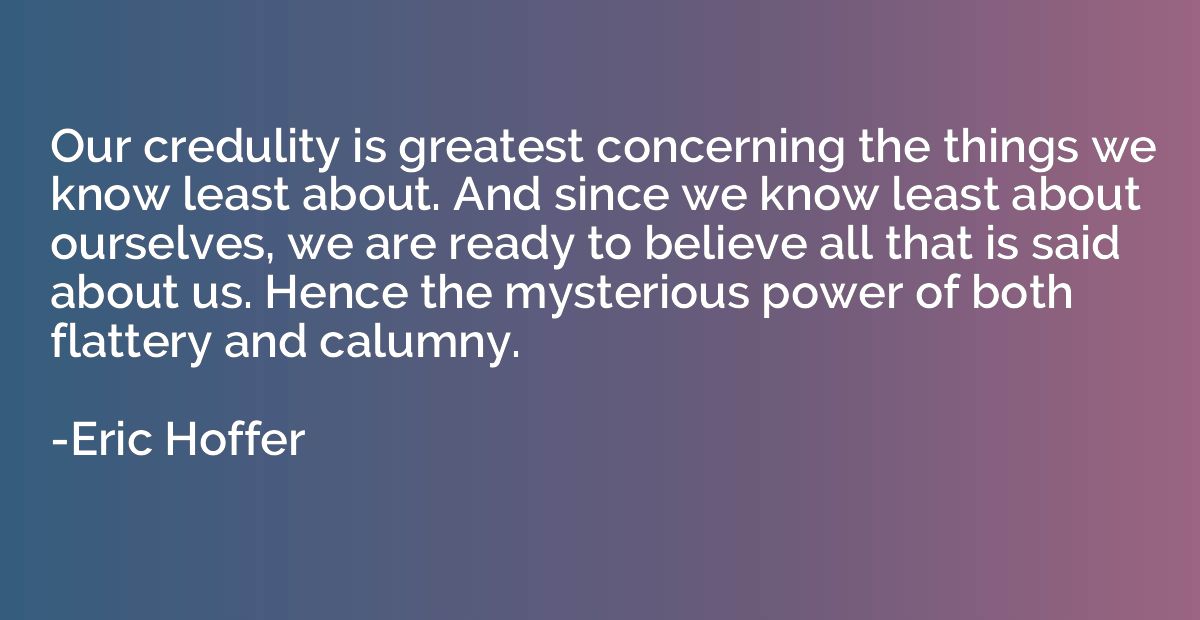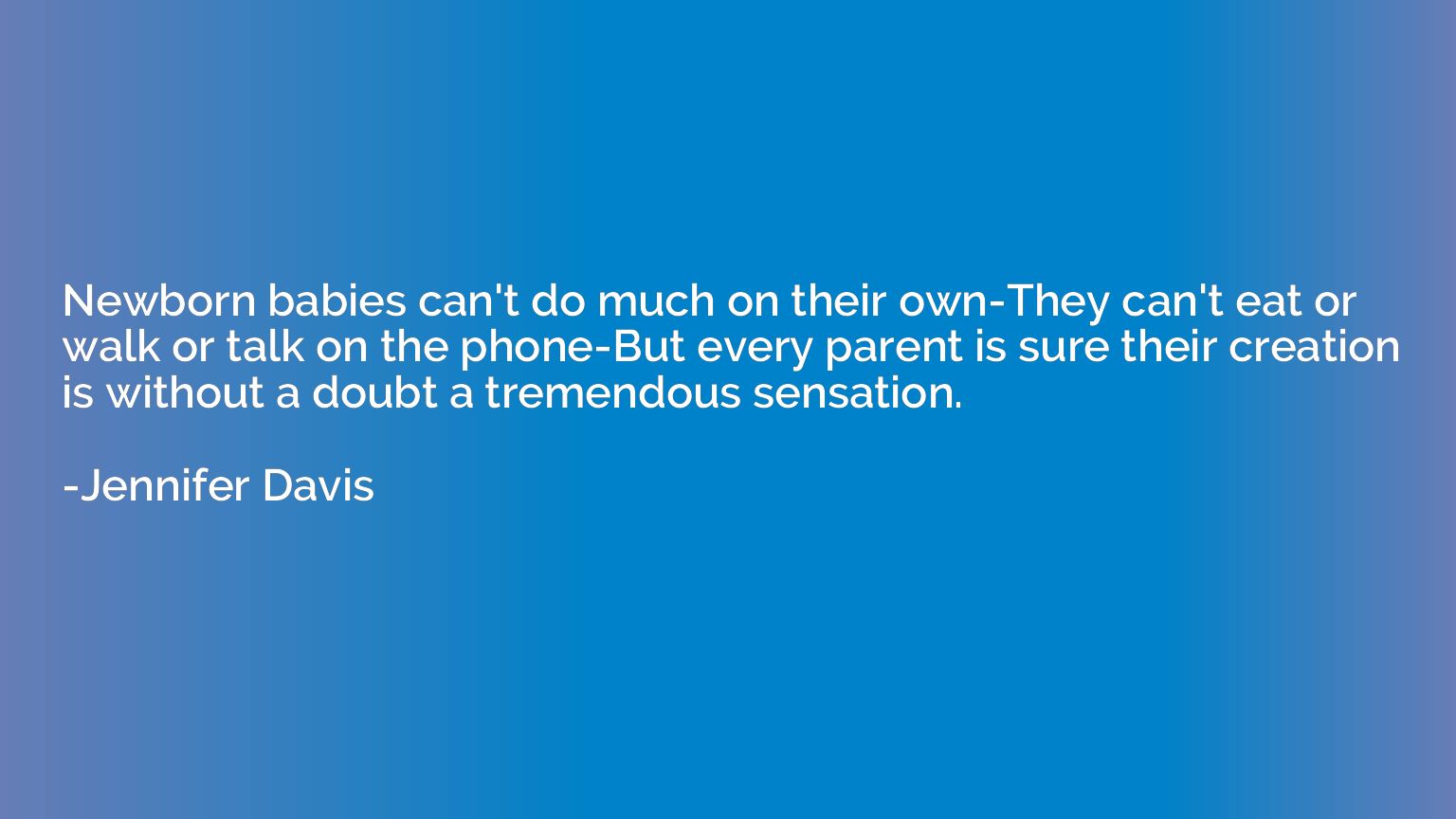Quote by Eric Hoffer
Our credulity is greatest concerning the things we know least about. And since we know least about ourselves, we are ready to believe all that is said about us. Hence the mysterious power of both flattery and calumny.

Summary
This quote suggests that people are most likely to believe information about things they are unfamiliar with. Since individuals often have limited knowledge about themselves, they tend to believe whatever is said about them, whether that be praise or criticism. This is why both compliments (flattery) and false accusations (calumny) hold a strong influence over individuals, as they are quick to accept and internalize these external perceptions. The quote highlights the vulnerability of our self-perception and the significant impact of others' opinions on our beliefs about ourselves.
Topics
Belief
By Eric Hoffer














